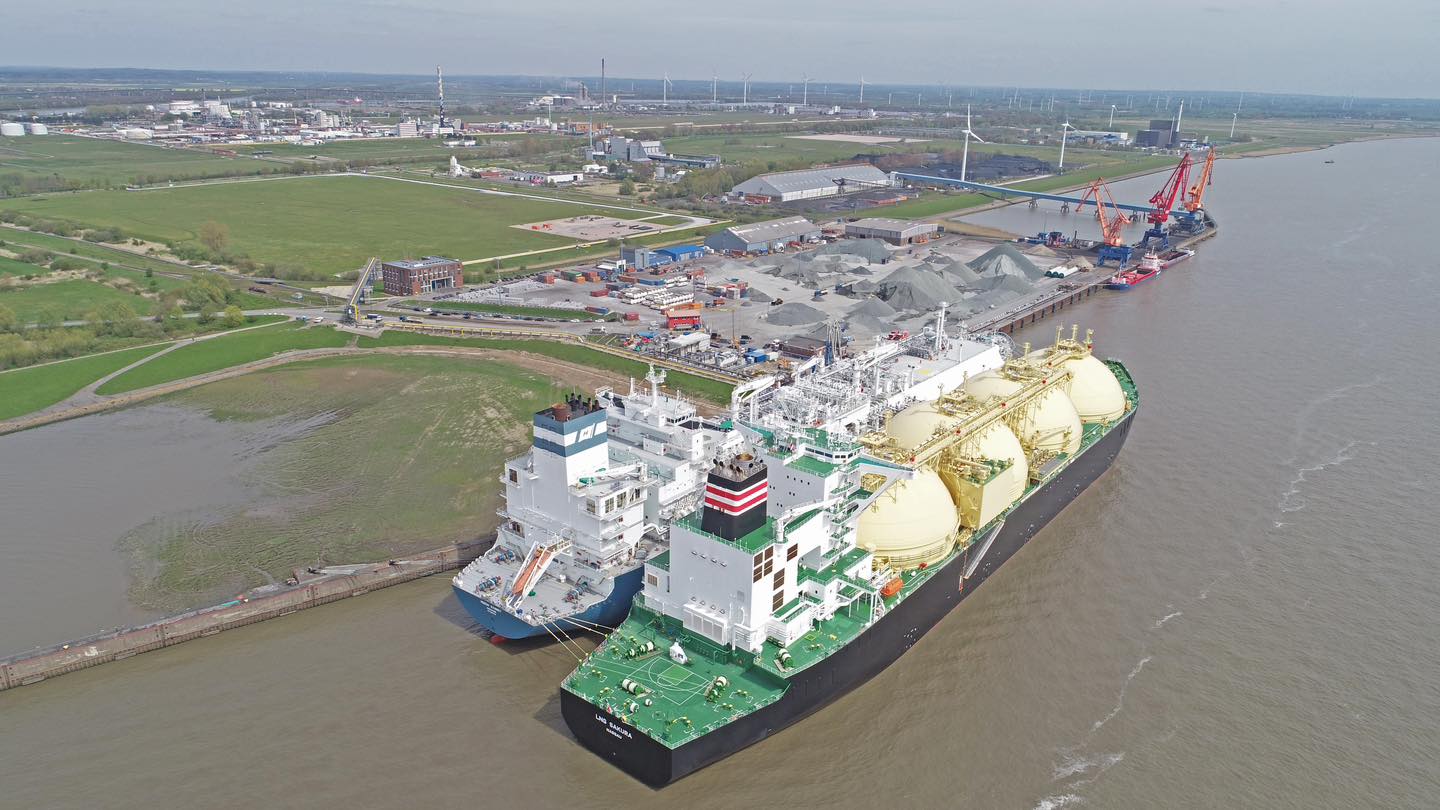State-owned LNG terminal operator Deutsche Energy Terminal is offering short-term regasification capacity at Germany’s FSRU-based terminals for the first time since its establishment in January.
Germany’s Federal Ministry for Economic Affairs and Climate Action (BMWK) established Düsseldorf-based DET in January to manage FSRU-based LNG import terminals.
DET will operate four LNG terminals in the North Sea area.
The company is holding auctions for regasification capacities including storage and sendout for the first time.
In two digital auction rounds, which are to start on October 16 and October 23, respectively, market players will be able to acquire utilization rights for the first short-term capacities in 2024 at the Brunsbüttel and Wilhelmshaven 1 terminals, DET said.
DET said it plans to offer further short-term capacities at the Stade and Wilhelmshaven 2 terminals in a subsequent auction round in December 2023.
The PRISMA platform will handle the auctions for DET regasification capacities.
Also, the LNG terminal operator added that it plans to market long-term capacities with a term of more than one year in April 2024.
German FSRUs
The German government, helped by Uniper, RWE, and the TES consortium chartered in total five FSRUs and it also signed a deal with private LNG firm Deutsche ReGas for one of the units.
Uniper and RWE installed Hoegh LNG’s FSRUs in Wilhelmshaven with a capacity of up to 7.5 bcm per year and Brunsbüttel with a capacity of about 5 bcm per year, while the FSRU Transgas Force, owned by Dynagas, recently arrived in Germany’s Bremerhaven, where it will be prepared for its upcoming job in Stade.
The Stade FSRU-based LNG terminal will have a capacity of some 5 bcm per year.
Excelerate Energy’s FSRU Excelsior is heading towards a yard in Spain for a planned technical stop ahead of the start of its job in Wilhelmshaven, Germany.
The vessel, which has a sendout capacity of 5 bcm per year, will serve the second FSRU-based facility in Wilhelmshaven. E.ON, TES, and Engie are the developers behind this terminal.
Moreover, private firm Deutsche ReGas, which officially launched its Lubmin FSRU-based LNG import terminal in January, plans to install the 174,000-cbm FSRU Transgas Power, also owned by Dynagas, to serve the LNG import terminal in the port of Mukran.
This FSRU will work along the FSRU Neptune in Mukran as part of the second phase of the LNG terminal.
The second phase of the terminal will have a capacity of up to 13.5 bcm per year, Deutsche ReGas said.

